Running the Numbers
Edited by Lilia Fernndez, Timothy J. Gilfoyle, Becky M. Nicolaides, and Amanda I. Seligman
James R. Grossman, Editor Emeritus
Recent titles in the series
Ann Durkin Keating, The World of Juliette Kinzie: Chicago before the Fire
Jeffrey S. Adler, Murder in New Orleans: The Creation of Jim Crow Policing
David A. Gamson, The Importance of Being Urban: Designing the Progressive School District, 18901940
Kara Murphy Schlichting, New York Recentered: Building the Metropolis from the Shore
Mark Wild, Renewal: Liberal Protestants and the American City after World War II
Meredith Oda, The Gateway to the Pacific: Japanese Americans and the Remaking of San Francisco
Sean Dinces, Bulls Markets: Chicagos Basketball Business and the New Inequality
Julia Guarneri, Newsprint Metropolis: City Papers and the Making of Modern Americans
Kyle B. Roberts, Evangelical Gotham: Religion and the Making of New York City, 17831860
Timothy Neary, Crossing Parish Boundaries: Race, Sports, and Catholic Youth in Chicago, 19141954
Julia Rabig, The Fixers: Devolution, Development, and Civil Society in Newark, 19601990
Amanda I. Seligman, Chicagos Block Clubs: How Neighbors Shape the City
Aaron Shkuda, The Lofts of SoHo: Gentrification, Art, and Industry in New York, 19501980
Mark Krasovic, The Newark Frontier: Community Action in the Great Society
Ansley T. Erickson, Making the Unequal Metropolis: School Desegregation and Its Limits
A complete list of series titles is available on the University of Chicago Press website.
Running the Numbers
Race, Police, and the History of Urban Gambling
MATTHEW VAZ
The University of Chicago Press | Chicago and London
The University of Chicago Press, Chicago 60637
The University of Chicago Press, Ltd., London
2020 by The University of Chicago
All rights reserved. No part of this book may be used or reproduced in any manner whatsoever without written permission, except in the case of brief quotations in critical articles and reviews. For more information, contact the University of Chicago Press, 1427 E. 60th St., Chicago, IL 60637.
Published 2020
Printed in the United States of America
29 28 27 26 25 24 23 22 21 20 1 2 3 4 5
ISBN-13: 978-0-226-69044-5 (cloth)
ISBN-13: 978-0-226-69058-2 (e-book)
DOI: https://doi.org/10.7208/chicago/9780226690582.001.0001
Library of Congress Cataloging-in-Publication Data
Names: Vaz, Matthew, author.
Title: Running the numbers: race, police, and the history of urban gambling / Matthew Vaz.
Other titles: Historical studies of urban America.
Description: Chicago: University of Chicago Press, 2020. | Series: Historical studies of urban America | Includes bibliographical references and index.
Identifiers: LCCN 2019035396 | ISBN 9780226690445 (cloth) | ISBN 9780226690582 (ebook)
Subjects: LCSH : Urban African AmericansGambling. | GamblingUnited States. | LotteriesUnited States.
Classification: LCC HV 6715 . V 39 2020 | DDC 364.1/720973dc23
LC record available at https://lccn.loc.gov/2019035396

This paper meets the requirements of ANSI / NISO Z39.48-1992 (Permanence of Paper).
Contents
My father also dreamed about numbers, writes former secretary of state Colin Powell, reflecting on his days in the Bronx during the late 1950s. Then, one Saturday night, my father dreamed a number, and the next morning at St. Margarets the same number appeared on the hymn board. This, surely, was God taking Luther Powell by the hand and leading him to the Promised Land. Somehow, Pop and Aunt Beryl managed to scrape up $25 to put on the number. And they hit it, straight. I still remember the atmosphere of joy, disbelief, and anxiety when the numbers runner delivered the brown paper bags to our house.... $10,000 in tens and twenties, more than three years pay.... And that was how the Powells managed to buy 183-68 Elmira Avenue, in the community of Hollis in the Borough of Queens.
For several consecutive generations, the numbers game, which took Colin Powells family from the Bronx to Queens, stood as the dominant lottery-style gambling game in New York City and in much of the urban northern United States. The crucial attributes of the game were its simplicity, consistency, and the offer of a reasonable chance to turn small change into a sum of modest but significant value. For city dwellers, such games as the numbers and its close cousin policy functioned as sources of entertainment, employment, and even social cohesion. In many ways, the relationship between winning and losing embedded in these games achieved popular consent as a life-governing ratio and a mechanism of wealth distribution, preferable to the ratios and patterns of distribution that prevailed in society.
A great deal has changed since the days of Luther Powell and $10,000 jackpots in brown paper bags. New Yorkers continue to gamble every day. But they gamble in different ways, on different terms, and for different reasons. Contemporary New Yorkers do most of their betting with the New York State Lottery, and in so doing are likely to encounter computers to pick their numbers for them, astronomical odds, jackpots beyond the conception of working people, and constant losing. In the 1950s, when the Powell family hit the number, no government ran a lottery anywhere in the United States. Police departments in major cities around the country tied themselves in knots contending with widespread illegal gambling. Yet three decades later, by the middle of the 1980s, the national landscape was covered in government lotteries. Television commercials encouraged Americans to bet, and police departments were minimally concerned with the issue of gambling. That remains the case today. The current status quo of public gambling represents the culmination and resolution of a series of disputes and struggles that stretch back to the early days of a thriving African American gambling economy.
The numbers game, first appearing in Harlem in the early 1920s, relied on an uncontrollable, and agreed-upon, daily published figure to generate a winning three-digit number. Originally the game used the three digits before the decimal point in the published totals of the New York Clearing House (a respected financial institution). The game later shifted to reliance on local racetracks to generate figures. If the Aqueduct Racetrack published a daily intake total of $142,549.75, then the winning number for the day was 549, and any New Yorker could verify this outcome by looking at the right spot in the newspaper, while feeling confident that the outcome was not rigged. A correct guess on the winning number paid out $600 on a one-dollar play. The openness of the game allowed many small-time entrepreneurs to take bets. A thriving gambling economy, with many black impresarios, quickly emerged in Harlem. Jamaican-born poet and Harlem resident Claude McKay, writing in 1940, classed the game among the liveliest industries in the neighborhood. He described the numbers as an open, simple and inexpensive game of chance, calling it a peoples game, a community pastime in which old and young, literate and illiterate, the neediest folk and the well-to-do all participate. This simple game swept aside the older policy game in the cities of the eastern seaboard.

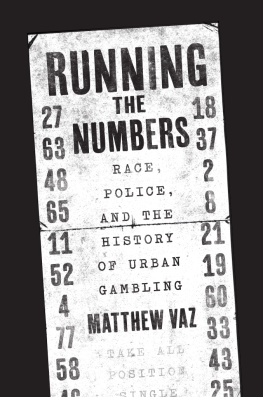
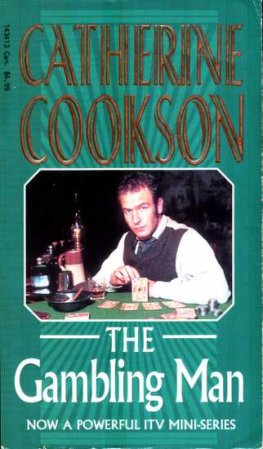
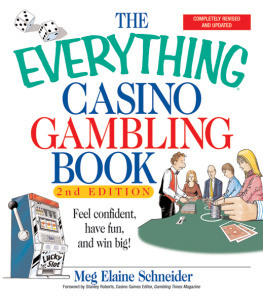

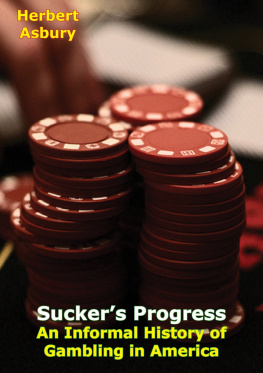
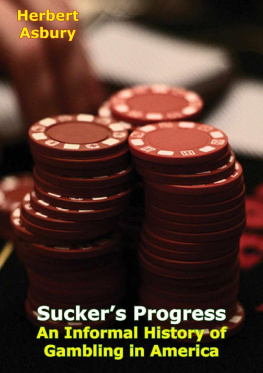
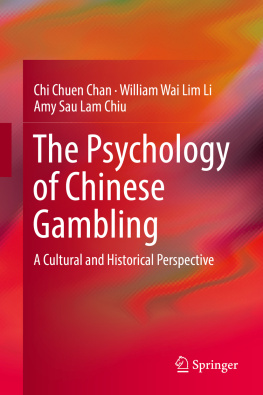


 This paper meets the requirements of ANSI / NISO Z39.48-1992 (Permanence of Paper).
This paper meets the requirements of ANSI / NISO Z39.48-1992 (Permanence of Paper).